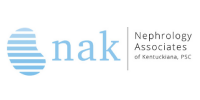Evergreen Nephrology: Saving Lives, Saving Money
By: Adam Boehler and Dylan Steer
“The first real hope that waiting list patients have had in a long time.”
That’s how the co-founder of one organ transplant advocacy group described a new rule the last administration put forward last year – which the current Administration has smartly continued – to incentivize organ procurement organizations (OPOs) to become more efficient and accountable and deliver better outcomes.
The rule couldn’t have come at a better time. There are currently an estimated 110,000 people on the wait list for organ transplants. The average wait time for a kidney is about five years. 33 people across the United States die each day from not receiving an organ of some kind.
With this new rule in place, there’s new hope among those on the waitlist and their families that there will be more organs available for transplantation. We at Evergreen Nephrology share that hope, and our launch coincides perfectly with it.
Evergreen’s approach is simple: partner with nephrologists to transform kidney care with one goal, allowing patients to achieve the best quality of life possible. Today, nephrologists are reimbursed based on the level of services rendered – tests, procedures, prescriptions, etc. instead of focusing on outcomes.
But Evergreen is different. We believe in value: doctors who produce the best health outcomes should be compensated according to their results, not the number of services they provide. Our partnership with nephrologists will give patients more and better care, improve patient outcomes, and will ensure physicians are compensated for results, not activities.
Evergreen’s approach will have special value for those taking new hope from the new rule governing OPOs. For many patients, added resources, such as those that Evergreen provides, also means more of a possibility to live long enough to receive a new kidney. And as the supply of kidneys hopefully increases, nephrologists partnering with Evergreen will have more options to keep patients who receive kidney transplants healthy for the long term.
Evergreen’s model has implications for America’s finances, as well. It’s estimated that every kidney transplant saves Medicare more than $1 million in dialysis spending. Evergreen wants to help keep patients healthy enough to receive a new kidney before they are forced to go on dialysis. If that outcome can be scaled across thousands of patients per year, it translates to well over $1 billion per year savings for Americans whose taxes pay into Medicare.
The future of American healthcare is value-based. Rubicon Founders is excited to play a role and hopes that patients, doctors, and the American taxpayer all benefit.
Adam Boehler is the CEO of Rubicon Founders and the Executive Chairman of Evergreen Nephrology. Dr. Dylan Steer is the CEO of Balboa Nephrology Medical Group and Balboa United.



















